June 3, 2025 | 19:32 GMT +7
June 3, 2025 | 19:32 GMT +7
Hotline: 0913.378.918
June 3, 2025 | 19:32 GMT +7
Hotline: 0913.378.918
The working party paid a visit to Mr. Tran Van Tuan's biosecurity pig farm in Pa Hao village, Ban Giang commune, Tam Duong district.
Tuan said that hundreds of billion dong had been invested in the farm's development since 2017. In the complicated setting of the African swine fever outbreak, animal husbandry engineers and ten additional employees were given housing and requested to work on-site for two months.
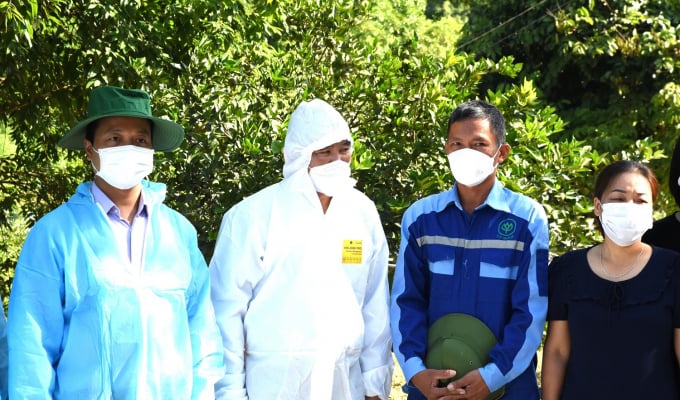
Deputy Minister Phung Duc Tien (2nd from left) visits Mr. Tran Van Tuan's pig farm in Pa Hao village, Ban Giang commune, Tam Duong district (Lai Chau). Photo: Minh Phuc.
"At the moment, C.P Vietnam Joint Stock Company provides all breeds of livestock, as well as feed and veterinary medications. The business covers all goods up to the point of export and pays VND4,500 per kg of live pig," Tuan said, assessing the profit in light of the present unstable pig pricing and confirming this is a substantial and steady profit.
Tuan's farming approach was highly regarded by the Deputy Minister of MARD when the rate of dead pigs and losses was less than 1.5 percent. "At the moment, biosecurity farming and an epidemic-free zone located away from residential areas are thriving. To produce high-quality pork, it is critical to strengthen controls on animal diet and antibiotic use. Even regulating feeds in terms of cleanliness and food safety for humans,” the deputy minister said.
Additionally, the agricultural leader made a visit to the complex site of seed production (salmon, sturgeon) and commercial cold fish products of the Agricultural Production and Service Cooperative of Ngu Chi Son Commune.
The cooperative's director, Vu Van Canh, stated that the cooperative's cold water fish farming region is situated at an elevation of 1,200m, with natural circumstances and a suitable environment for the growth of sturgeon and salmon. Since 2010, cooperatives have spent about VND40 billion on the construction of 120 breeding tanks.
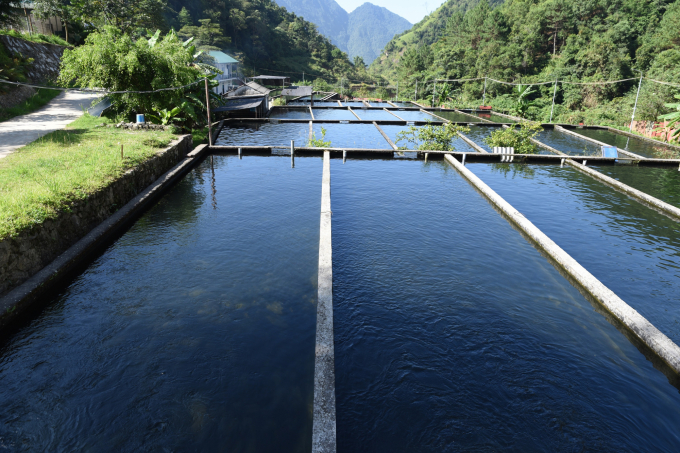
The complex of breeding site and cold-water fish (salmon, sturgeon) commercial products of the Agricultural Production and Service Cooperative of Ngu Chi Son Commune in Tam Duong District (Lai Chau). Photo: Minh Phuc.
By 2022, production is projected to reach 200 tons or more, with the majority of the product consumed in Hanoi and the northern regions.
However, the tanks for breeding and rearing sturgeon and commercial salmon remain intermingled for the moment. Canh suggested that Lai Chau province provide land for joint investment in order to establish a centralized, modern-scale breeding facility for the area.
Deputy Minister Phung Duc Tien said that a cold water fish farming facility in Sapa arranges a whole system for preparing and sealing vacuum plastic bags that are then shipped to Hanoi for sale. As a result, the Ngu Chi Son Cooperative must also gain this experience in order to develop a value chain for sturgeon and salmon products and thus increase profitability.
Lai Chau's authority said that despite the province's impoverished state, the province released five plans and five resolutions to promote "tam nong" (a connection of agriculture, farmers and rural areas).
Lai Chai is also a leader in terms of budget spending on agriculture development, having spent approximately VND 1 trillion over the last five years.
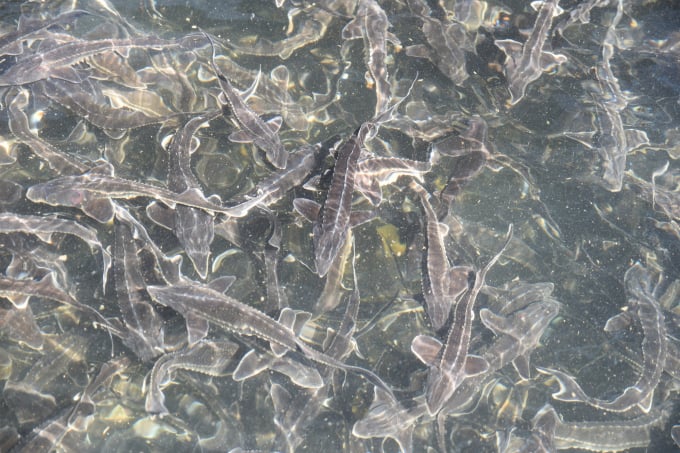
Cold water fish has very good growth potential in Lai Chau. Photo: Minh Phuc.
Additionally, the Chairman of the Lai Chau Provincial People's Committee presented four suggestions for the MARD at the meeting. To begin, it proposed that the Ministry assist in organizing a conference to promote agricultural investment in November or at the end of this year, featuring large and prestigious agricultural enterprises.
According to the head of the Lai Chau Provincial People's Committee, Lai Chau's forest cover has increased to 51%, which is a significant benefit for the development of beekeeping and animal husbandry. Additionally, Lai Chau contains many biological zones that are ideal for cold water fish aquaculture. However, determining which breed to select and how to breed technology to spread the models remains a significant challenge.
Second, Lai Chau has international border crossings and a market of many tens of millions of people in Yunnan province, China, yet the consumer price index is comparable to Hanoi. In instance, the province's meat production can only satisfy around 80% of demand; the remaining 20% must be imported from northern regions.
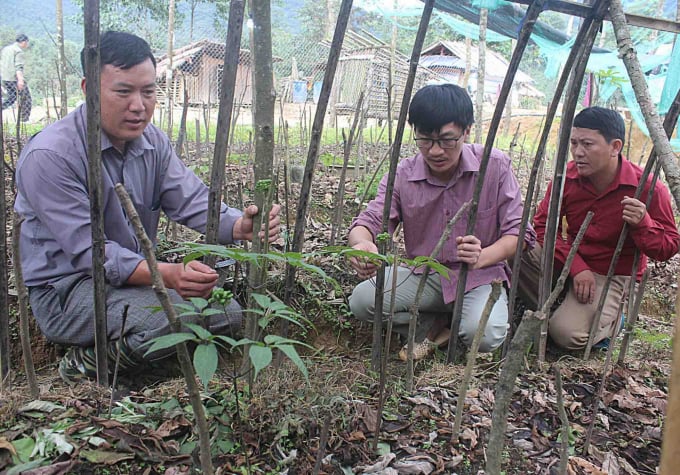
Lai Chau with precious ginseng species is believed to have great potential for development. Photo: Hoang Anh.
As a result, if models for pig and buffalo breeding are not developed, the province's CPI will be difficult to reduce, and people will struggle to escape poverty. As a result, Mr. Dung proposed that the MARD undertake initiatives aimed at transferring agricultural extension to companies in order to improve the province's food supply chains.
Thirdly, scientists estimate that Lai Chau contains 780 medicinal herb species, 80 of which are planned. “We have decided that Muong Te will become a medicinal district in the future, with the primary objective of expanding the region for ginseng cultivation. The Institute of Medicinal Materials assisted us in selecting and developing a Lai Chau ginseng strain, which is now being distributed across the province. The grade of the ginseng produced in Lai Chau is comparable to that of Ngoc Linh ginseng," the Lai Chai chief said.
As a result, Lai Chau province recommended to the Ministry of Agriculture and Rural Development that they transfer and disseminate this ginseng type, as well as research and evaluate soil samples, planting and care methods. Because, at the moment, people go into the forest to collect ginseng and then bring it back to construct land based on their experience, not on scientific evidence.
In response to the People's Committee of Lai Chau province's recommendations, Deputy Minister Phung Duc Tien assigned the Department of Livestock Production as the focal point for coordination with other ministries and Lai Chau province in preparation for the organization of an investment promotion conference in the province's agriculture, which invites large agricultural enterprises to invest.
Additionally, the Deputy Minister requested that the National Agricultural Extension Center coordinate agricultural extension projects in Lai Chau, as well as the transfer of production techniques associated with enterprises that wish to develop into a commodity value chain and improve farmers' livelihoods.
Translated by Linh Linh
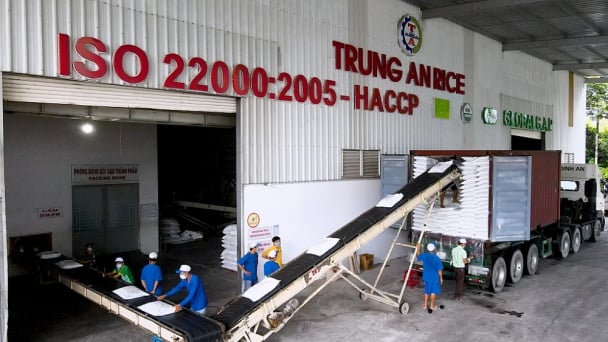
(VAN) On June 5, in Can Tho City, the Vietnam Rice Industry Association (VIETRISA) and Trung An Company will hold a ceremony to export the first shipment of 'Green and Low-Emission Vietnam Rice' to Japan.

(VAN) Minister Do Duc Duy believes this event will mark the start of a new chapter in deeper cooperation between Vietnam’s agricultural sector and the state of Iowa.
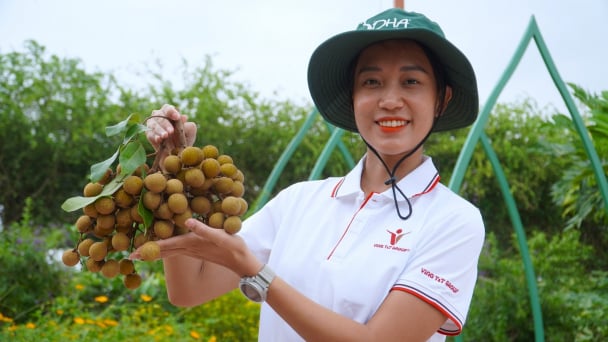
(VAN) Once merely a fruit found in local markets, Thoi Hung longans are now featured on supermarket shelves in the United States and Australia under the brand 'King Longans' – the king of longans.
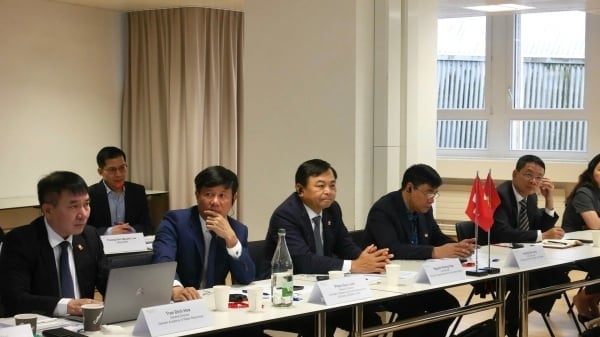
(VAN) On June 2, Deputy Minister Nguyen Hoang Hiep worked with the Swiss State Secretariat for Economic Affairs, the Swiss Agency for Cooperation and Development and Head of Infrastructure Financing Dagmar Vogel.
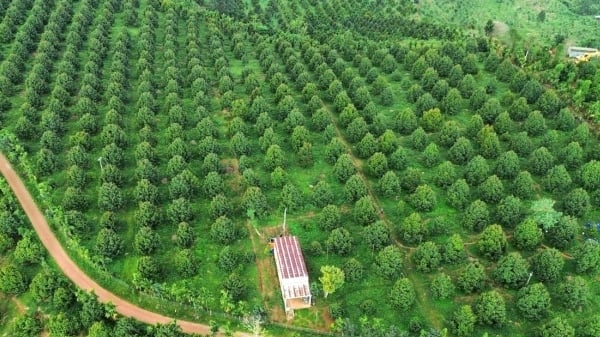
(VAN) The Prime Minister assigned the Minister of Agriculture and Environment to direct localities to review and fully prepare the necessary conditions (such as crop varieties, livestock, materials, fertilizers, etc.) for production.
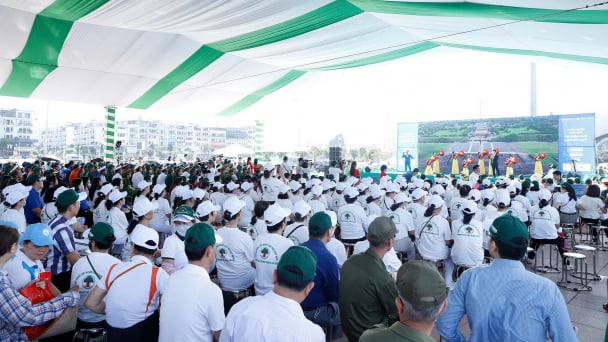
(VAN) On June 1, a grand meeting was held in Ha Long city, Quang Ninh province, to celebrate World Environment Day and launch the National Action Month for the Environment 2025.

(VAN) From the meeting in Ha Long, the United Nations called for the establishment of a legally binding global treaty to end plastic pollution.